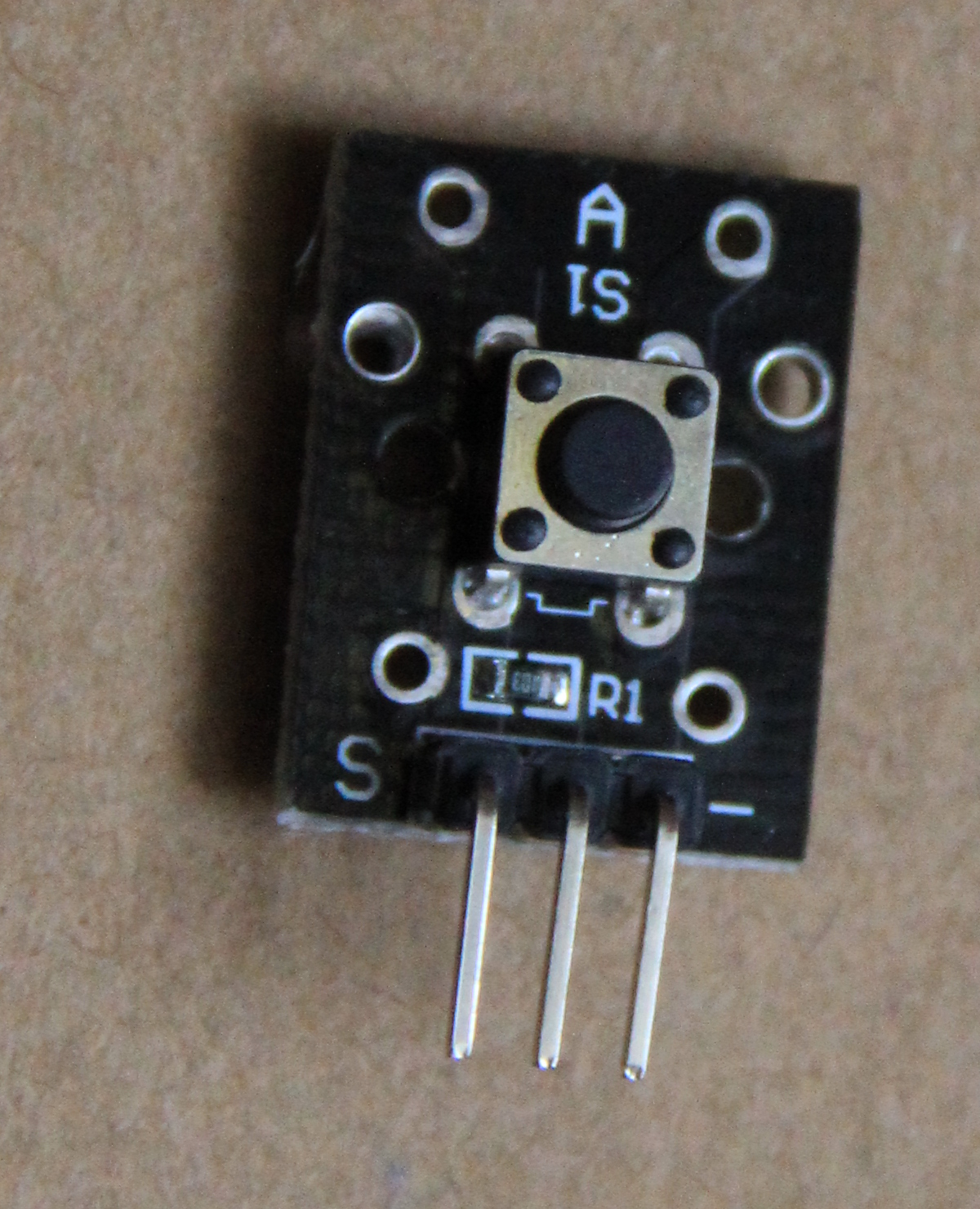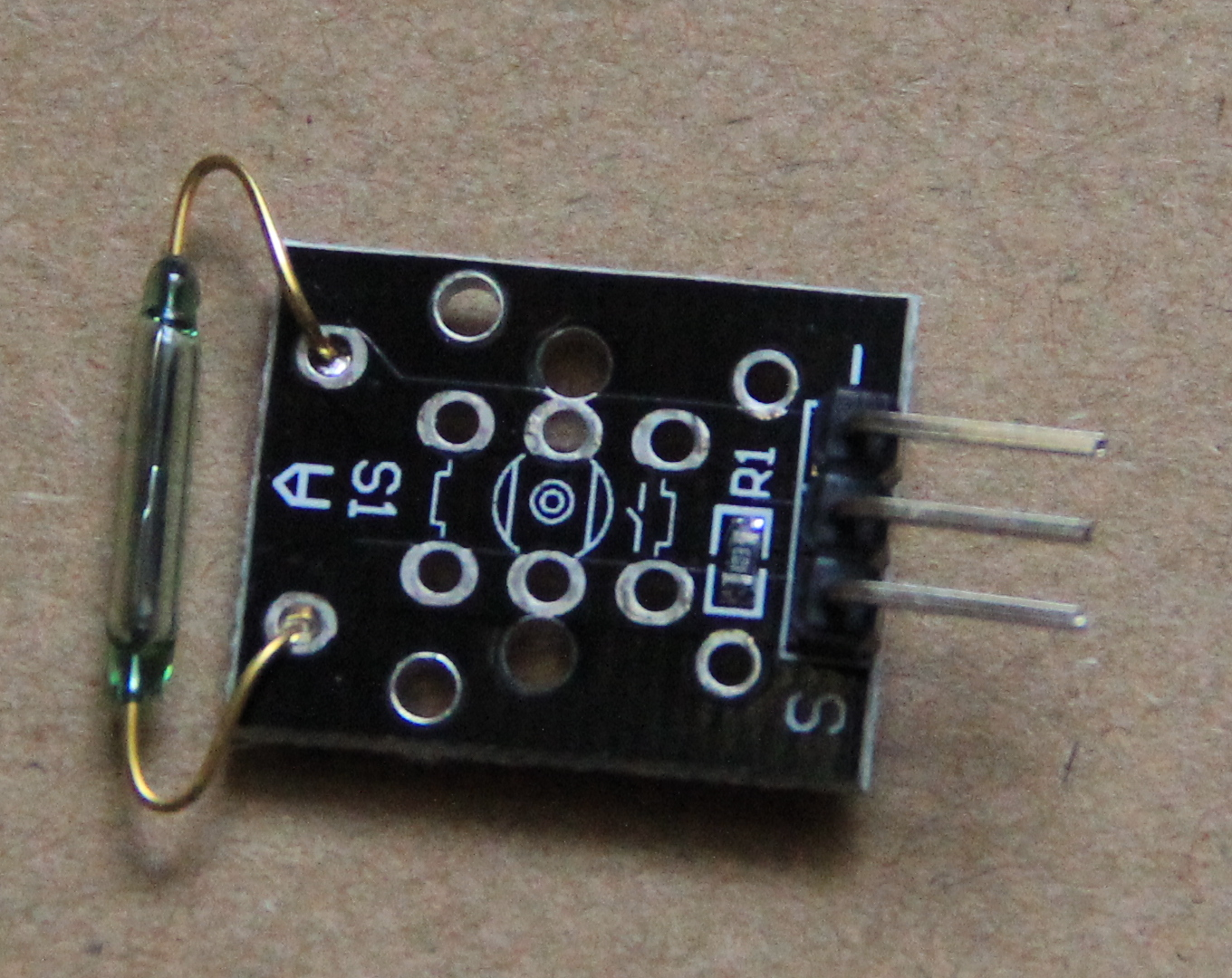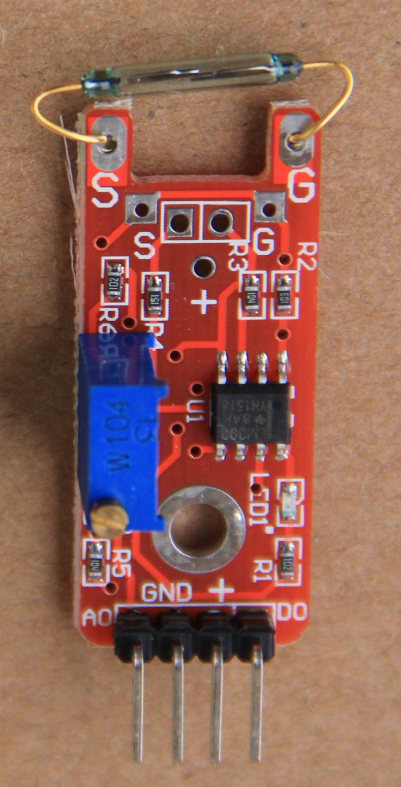Switches
There is quite a variety of different types if switches starting from a simple push button to reed switches which are sensitive to magnetic field, mercury switches and the "magic cup" as well as the relay, which allows to control high power signals with a low power signal.
The push button
The simplest switch device is a pushbutton. It short-circuits 2 pins if pushed and opens them when release. The little PCB board contains a 10 kΩ resistor, which can be used to pull up one of the 2 leads to a Vcc voltage level and which can be switched to ground by pushing the switch.
 |
|
| The pushbutton |
|
Mercury switches
There are 2 different types of Mercury switches which contain a small mercury ball short-circuiting 2 leads. When the device is tilted the mercury flows away from the leads and the contact opens. Both PCBs contain a Mercury switch and a LED connected in a different way however. There are 2 PCBs with a mercury switch and a big LED which can be operated directly from 3.3V without an additional current limiting resistor. These PCBs are also called "magic cups" because they can be programmed such that you can "pour light" from the LED of one PCB to the other by inclining the board.
 |  |
| The magic cup | Schematic of the magic cup |
Reed Switches
A Reed switch reacts on magnetic fields and creates a short circuit when a strong enough magnetic field is in its neighborhood. The reed switch comes in 2 versions which however have essentially the same functionality. While the first one is mounted on a PCB by itself (again with a 10 kΩ resistor that can be used to pull one of the leads up to Vcc) the other one is mounted on a PCB which is normally used for analogue sensors.
 |
 |
| simple reed switch |
reed switch on analogue board |
--
 Uli Raich - 2017-01-15
Uli Raich - 2017-01-15
Comments
Topic revision: r1 - 2017-01-15
- uli








